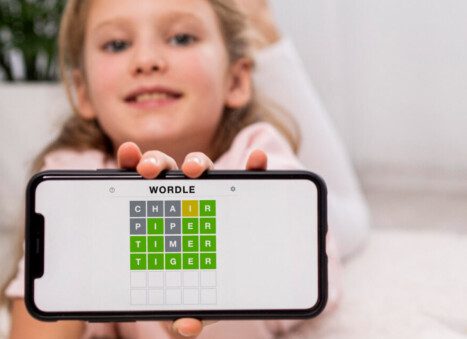
Helping Young Children Learn To Pronounce Words: Tips To Follow
Part of the reading process for older preschoolers involves identifying and pronouncing words.
As they progress, they start identifying simple, familiar words like their own name, and soon, they become adept at recognizing other common words such as “dog,” “bird,” and “cat.”
This is often called “sight reading,” where children recognize words by remembering the letter patterns.
Additionally, children can learn to pronounce new words by attempting to sound them out. They learn to break words down into their parts to understand pronunciation. For example, the word “dog” can be dissected into “d,” “o,” and “g.”
Childcare providers employ various methods to assist children in mastering word pronunciation.
In this article, we will explore the different ways to help children learn the right pronunciation.
Helping Young Children Learn to Pronounce Words

Helping young children pronounce words is an essential part of their language development. Clear and accurate speech not only aids in effective communication but also boosts a child’s self-confidence.
As a parent or caregiver, you play a significant role in shaping a child’s speech abilities. Here are some valuable tips to help you support and encourage your child’s pronunciation skills.
1. Be An Engaged Listener
One of the most effective ways to help young children with their pronunciation is to be an active and patient listener. When they speak, could you give them your full attention?
Show that you value what they say by maintaining eye contact and responding enthusiastically. This encourages them to speak more and take pride in their words.
2. Model Clear Speech
Children often learn by imitating those around them. Speak clearly and enunciate words when you communicate with your child.
Avoid using baby talk or simple language, which can hinder their progress. Instead, be a model of proper pronunciation and language usage.
3. Correct Gently And Positively
When your child is not able to say a word, correct them gently and positively. Avoid criticizing or making them feel self-conscious about their mistakes.
Instead, repeat the word and encourage them to try again. Praise their efforts and progress, even if it’s gradual.
4. Play Word Games
Engage in word games and activities that make pronunciation fun. Games like “Simon says,” “rhyming words,” or “I spy” can help children pay attention to sounds and practice saying them multiple times. These activities turn learning into a playful experience.
In addition, you can ask them to write with specific letters. For instance, you can ask your child to spell and write words with s letter. This will help them learn new words with letters.
5. Read Together
Reading with your child is one of the best ways to expose them to various words and sounds. Choose books with clear and distinct pronunciation, and encourage your child to repeat or echo the words you read together. This not only enhances their vocabulary but also sharpens their pronunciation skills.
6. Practice Patience
Learning to pronounce words correctly can take time, and children may struggle with certain sounds longer than others. Being patient and understanding is essential, allowing your child to progress at their own pace. Avoid undue pressure or frustration; instead, offer support and encouragement.
7. Seek Professional Guidance If Needed
Children may sometimes face speech development challenges that require professional intervention. If you have concerns about your child’s pronunciation or speech development, don’t shy away from consulting a speech therapist or pediatrician. Early intervention can address issues effectively and ensure your child receives support.
8. Be Consistent
Consistency is key when helping children learn to pronounce words. Regular practice and reinforcement of correct pronunciation will yield positive results over time. Ensure that everyone involved in the child’s care, including caregivers and family members, follows similar language and pronunciation practices.
9. Encourage Storytelling
Prompt your child to tell stories or describe their experiences. Storytelling helps them practice pronunciation in a meaningful context and fosters creativity and confidence in expressing themselves.
10. Celebrate Achievements
Recognize and celebrate your child’s achievements and progress in their pronunciation journey. Positive reinforcement, such as praise or small rewards, can motivate them to continue improving their language skills.
What Are The Challenges Faced?
The challenges faced in helping young children learn to pronounce words can vary from child to child, but several common obstacles may be encountered:
Articulation Difficulties:
Some children may struggle with certain speech sounds, leading to articulation difficulties. They may have difficulty pronouncing specific consonants or vowels correctly, hindering their overall speech clarity.
Developmental Delays:
Children develop speech and language skills at different rates. Some may experience speech development delays, making it challenging for them to pronounce words correctly for their age.
Lack of Exposure:
Children with limited exposure to various words and sounds may need help developing their pronunciation skills. Exposure to a rich vocabulary is essential for language development.
Inconsistent Practice:
Consistency is crucial when helping children improve their pronunciation. Inconsistent practice or lack of reinforcement can slow down progress.
Stuttering or Fluency Issues:
Some children may develop stuttering or fluency issues, affecting the flow and clarity of their speech. These issues can be frustrating for both the child and their caregivers.
Speech Sound Disorders:
In some cases, children may have speech sound disorders, not being able to say words correctly. And it can be especially challenging. These disorders may require the expertise of a speech therapist.
Lack of Confidence:
Children who struggle with pronunciation may become self-conscious about their speech, leading to a lack of confidence and reluctance to speak or participate in conversations.
Complex Sounds and Phonological Awareness:
Mastering complex sounds and phonological awareness (understanding the sound structure of words) can be challenging for young children. It requires patience and practice.
Environmental Factors:
The home environment and the people a child interacts with can greatly influence their pronunciation skills. Inconsistent language models or exposure to multiple languages can pose challenges.
Resistance to Correction:
Some children may resist correction or become frustrated when their pronunciation is corrected, making it more difficult to help them improve their speech.
Parents, caregivers, and educators must remain patient, supportive, and proactive to address these challenges effectively. Seeking guidance from speech therapists or early intervention specialists when necessary can also be beneficial in addressing specific speech and language challenges.
Final Thoughts:
Aiding young children in learning to pronounce words is a crucial component of their language development journey. Clear and confident speech enhances their communication skills and boosts their self-esteem.
As caregivers, parents, and educators, we play an instrumental role in facilitating this process. By being patient, providing consistent positive reinforcement, and engaging in fun and educational activities, we can help children build their vocabulary and refine their pronunciation skills.
Remember that each child progresses at their own pace. So, fostering a supportive and encouraging environment is paramount.
These early experiences in learning to pronounce words are not just building blocks for effective communication but also for a child’s self-assuredness and love for language and learning.
Read Also:
Already have an account?
Sign In
Create your account
User added successfully. Log in









